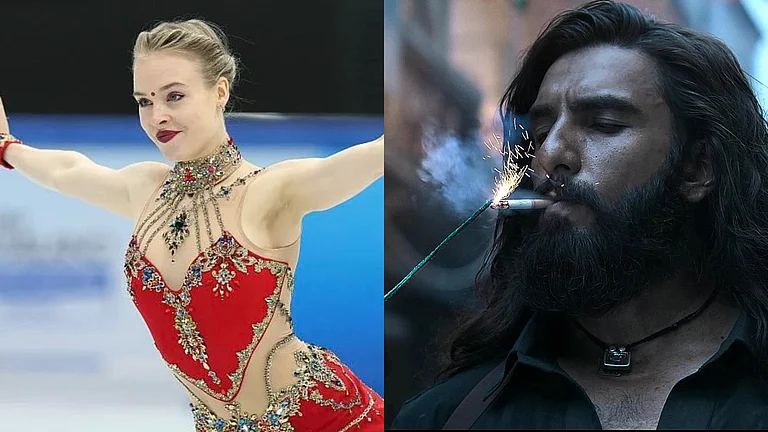On a Sunday evening in January, Sharad Chand Jain sits up in his sick bed at Mumbais Jaslok Hospital. The 55-year-old defence ministry employee from Meerut has no voluntary control over his wildly swinging limbs. Yet, his heart is full of hope. For, Jain will go under Dr Paresh Doshis scalpel early next morning and possibly be cured of his 13-year suffering from a progressive Parkinsons disease.
Jain has just been visited by another patient recuperating at the same hospital who reassures him that the effect of the operation is magical. He will feel the change instantly, for the doctor will use local anaesthesia to implant electrodes into his brain. Electric current from batteries implanted underneath the chest muscles will halt his tremors, restore movement coordination and bring a smile to his face-something he has not been able to do for a long time now.
Two days later, Jain is relieved that he can now at least go to the toilet on his own. Muscular functions in one leg almost lost due to a knee fracture, Jain had to depend on others for even the mundane chores with the progress of the Parkinsons disease. One week later, Jain is walking with little support, tremors down to a minimum in the right fingers and leg. So is his medicine intake, which in any case has been causing side-effects for sometime now.
Jain is the fourth patient to benefit from subthalamic nucleus stimulation-or deep-brain stimulation (DBS)-being pioneered in India by Dr Doshi and Dr Mohit Bhatt, a movement disorder specialist, at the Jaslok Hospital. Dr Bhatt, during one of his refresher courses abroad, sat up in excitement when he found the technique demonstrated by doctors at the Vienna Medical University Centre in Austria for treating another disease. He saw the possibilities of this technique in treating Parkinsons patients and therein began his search for an ideal partner, a neurosurgeon who shared his enthusiasm. His quest ended on a flight to Jaipur two years ago when he got chatting with Dr Doshi and each recognised in the other a kindred spirit. They picked up different aspects of the technique from five university centres in Europe, including Grenoble in France, and brought it under one roof at Jaslok. The rest, as they say, is history-Parkinsons patients now have a "tremendous future", thanks to the duo.
"I dont know what else I can call it," says Dr Keki Turel, professor and head of neurosurgery at the Bombay Hospital Institute of Medical Sciences. "It can be best described as a sophisticated surgery offering a tremendous future to sufferers from the disease." His hospital is also getting into the act, though at the moment its reluctant to go public with the cases it might have treated. Adds Dr Ashok P.P., neurologist with Hinduja Hospital: "Its early days yet and this is a second line of treatment. Its promising, though its efficacy needs to be confirmed by comprehensive studies."
Essentially, DBS is a 21st century miracle wrought by electronics, indicating the future applications of computerised technology in the treatment of ailments defying a conventional cure. Medtronics, the company which made its name in pacemakers, is now set to revolutionise brainwaves as well. The reason why DBS is available only in a limited number of hospitals globally is because it is this US-based company which is said to be determining which hospitals it should cooperate with. Currently, DBS surgeries are done in the presence of Medtronics officials-and it is the cost of the electrodes that dictates this procedure, as well as the fact that once the seals are broken, the electrodes cannot be resterilised.
In the US, the electrodes cost $10,000 a piece. In India, Drs Doshi and Bhatt have persuaded the company into providing them the electrodes at $4,000 each. "Very few in India can afford it otherwise," say Dr Doshi. "Even now, its just about within the range of a middle-class Indian. Any further hike and it wont be."
The two doctors have, therefore, got Jaslok Hospital to minimise establishment costs for patients (who must buy the electrodes directly from the company) and waived their fees. Even after this, costs come close to Rs 5 lakh. The government can do little as the electrodes, in the life-saving category, are already on a zero-duty list. Dr Doshi is, therefore, seeking help for his patients from charitable institutions and insurance companies who help out with heart bypasses.
Says a cryptic Dr Bhatt: "Whats a bypass after all? A little bit of cutting away of the arteries thats needlessly commercialised. Fewer risks and something about whose efficacy you are sure only in the long-term. But this....this is religion!" Passion throbs in his voice and eyes: "Not everyone can do it. Its effect is instant. It is magic."
Indeed it may well be as his first case Vimlesh Shah, 42, testifies. He developed Parkinsons at the relatively young age of 30. Twelve years later, medicines ceased to have any effect on him. For the past four years, he was bedridden. He grew desperate. "It was a do-or-die situation," says Shah. A day after Jains surgery, who opted for DBS only after he saw Shah climb down four floors unsupported, hes busy pacing the hospital corridors encouraging the two patients (one has come all the way from the US) who have undergone the implants recently.
Proof enough that DBS holds a future for those who had none not so long ago.























